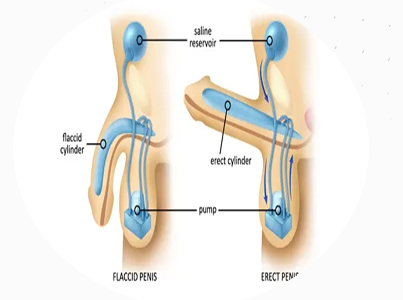
Erectile dysfunction
Erectile dysfunction (impotence) is the inability to get and keep an erection firm enough for sex. ED could be a primary indicator of cardiovascular illness, indicating that blockages are forming in a man's vascular system. According to certain research, men with ED are at a higher risk of having a heart attack, stroke, or circulation disorders in the legs.
Symptoms
Erectile dysfunction symptoms might include persistent:
- Trouble getting an erection
- Trouble keeping an erection
- Reduced sexual desire Tests and Treatment
Tests for underlying conditions might include:
- Physical exam.
- Blood tests.
- Urine tests (urinalysis).
- Ultrasound.
Non-invasive treatments are often tried first. Such treatments include:
- Oral drugs or pills
- Testosterone Therapy
- Penile Injections
- Intraurethral medication
- Vacuum Erection Devices
- Penile Implants Surgical Treatment
The main surgical treatment of ED involves insertion of a penile implant (also called penile prostheses). Penile implants are devices that are completely implanted inside your body. They make a stiff penis that allows you to have normal sex.
There are two types of penile implants:
- Semi rigid Implant (Bendable)
- Inflatable Implant
While penile vascular surgery is not indicated for elderly males who have failed oral PDE5 inhibitors, ICI, or IU treatments, implants are the next step for these patients.
Make an appointment right away for consultation on issues related to sexology.
Call With Doctor